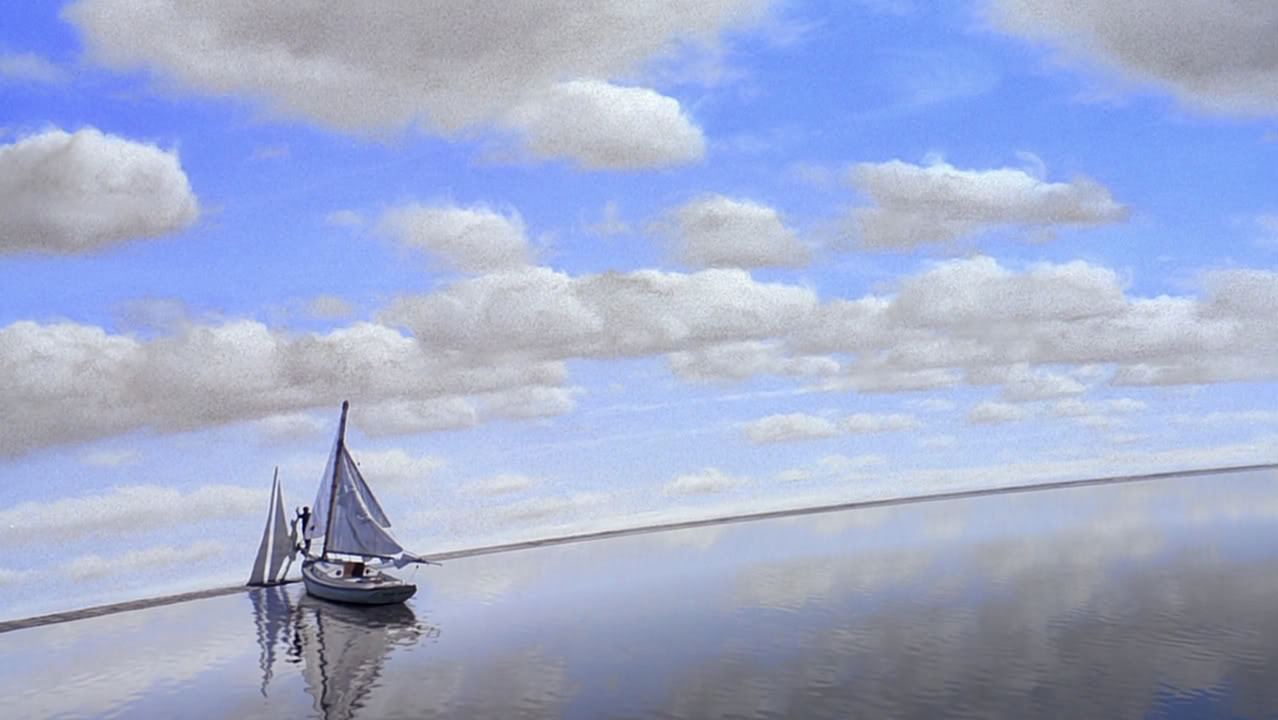Today's trend, and the trend of the last 5 years, is to make MASSIVE games. The bigger, the better. Developers bragged about their games being 5 kilometers and with seamless loading of new areas. I'm naturally referring to FPS games, 3D person and driving games.
It seems that, as the game worlds got bigger, they got emptier. They had less graphical content per square kilometer, less gameplay content per square kilometer and looked bland/badly procedural. Like watching the whole set of seasons of Law and Order a few times over. The numbers do sound impressive but are the gamers happier? Or much more importantly, are the games more immersive, interesting and offer a fuller experience than their colleagues on diet?

 To get back to my initial argument, BIG games are BORING games indeed. Think of how developers focus on programming a smooth experience, fantastic graphics without slowdowns while loading massive worlds, while the story writers and gameplay innovation is given a back seat ride, or even a ride in the trunk of the car. Bigger games also don't cause familiarity with the terrain and areas, they are just places to be exploited and the player moves on, they don't have that impact that you can carry with you as a personal intimate experience. And why should they? When bigger areas are mostly more bland and shallow.
To get back to my initial argument, BIG games are BORING games indeed. Think of how developers focus on programming a smooth experience, fantastic graphics without slowdowns while loading massive worlds, while the story writers and gameplay innovation is given a back seat ride, or even a ride in the trunk of the car. Bigger games also don't cause familiarity with the terrain and areas, they are just places to be exploited and the player moves on, they don't have that impact that you can carry with you as a personal intimate experience. And why should they? When bigger areas are mostly more bland and shallow.
Games need to guide or even force the player to familiarize themselves with the specific atmosphere/environment of people, objects, terrain so well, that playing a specific game should leave the player remembering his experience years after he hasn't even thought of the game. Detailed knowledge of the culture, the specific area, the people, should be implemented as gameplay elements, and rewarded when successful.
That impact has diminished in recent times, we can barely relate to areas even if we've been there many times over. There is no interaction with the specific area, it's just an empty scene of cardboard props, meaningless, lacking substance. Striving to build BIG is the culprit, among other things.
 What smaller games can do, is focus on their advantage over their bigger counterparts, engage with elements of the playing field. Make props important, integrate them into the whole of the gameplay. Make the environment believable, as if it has actually evolved over time, and you are entering a culture, not actors and Truman Show scenes. Imagine a tiny, limited area of gameplay, with a major focus on culture immersion, people skills, subtle things that a strong familiarity with that specific gaming area would immensely promote. Creating virtual culture that is interconnected, contextual, sensible is actually quite hard, but also quite rewarding, and in a way, games of such calibre leave a visible mark on players lives. When culture, atmosphere and gameplay are intertwined well, the player could literally spend hours on end, just enjoying observation of interaction of NPC's, or observing causal relationships that develop when you influence the game subtly or just enjoying being there, as a part of that alternative virtual culture. Alternative to IRL that is.
What smaller games can do, is focus on their advantage over their bigger counterparts, engage with elements of the playing field. Make props important, integrate them into the whole of the gameplay. Make the environment believable, as if it has actually evolved over time, and you are entering a culture, not actors and Truman Show scenes. Imagine a tiny, limited area of gameplay, with a major focus on culture immersion, people skills, subtle things that a strong familiarity with that specific gaming area would immensely promote. Creating virtual culture that is interconnected, contextual, sensible is actually quite hard, but also quite rewarding, and in a way, games of such calibre leave a visible mark on players lives. When culture, atmosphere and gameplay are intertwined well, the player could literally spend hours on end, just enjoying observation of interaction of NPC's, or observing causal relationships that develop when you influence the game subtly or just enjoying being there, as a part of that alternative virtual culture. Alternative to IRL that is.
EDIT: Was advised to put some examples of good and bad games that aid my argument.
Bad massive games: Lost Cause, Skyrim, Prototype, Oblivion...
Good tinier games: Deus Ex, S.T.A.L.K.E.R. series, Thief series

Astonishing I haven´t bought any of these ganes but I would like to buy Deus Ex Human Revolution and Thief... and maybe someday play STALKER too. Definitely you are totally right here, I suppose because tiny games often are a master piece.
For example Portal or Battlefield 2142, are games which have good settings, the first one is so original and has a singleplayers super-inmersive story and the second one without lacking its small dev team or its poor development time (1 year) has got the best friend-friendly experience,a s playing multiplayer with your friends it´s fresh and great.
Play Deus Ex 1 first, if you haven't already , there are mods for it that make it look delicious.
Indeed but if it is as Half life I got disappointed by Half Life 1 story quickly... I didn´t like the graphics or something and I haven´t really play them!